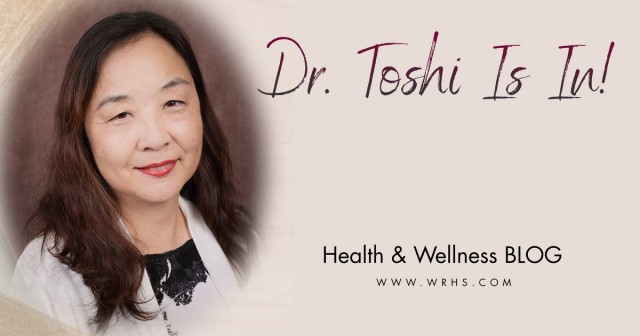Dr. Toshi Is In! "Vitamin C"
Dear Dr. Toshi,
Can vitamin C prevent me from catching a cold or even from getting COVID?
You might have heard that vitamin C can help prevent a common cold or even COVID.
Unfortunately, there's no clear data showing that vitamin C can help prevent colds, according to the American Academy of Family Physicians (AAFP). The AAFP says that taking vitamin C every day doesn't prevent people from getting sick, but it might help their cold go away faster if they were already taking it before they got sick. It won't help if they start taking it once they already have cold symptoms. And the AAFP doesn't say anything about vitamin C for children.
When it comes to COVID, the National Institutes of Health (the NIH is part of the U.S. Department of Health and Human Services) says that there isn't enough data to recommend using vitamin C for treating COVID-19, except in patients who are critically ill.
As for taking vitamin C to help prevent colds, the Centers for Disease Control and Prevention (CDC) states, "Taking vitamin C supplements regularly reduces the risk of catching a cold among people who perform intense physical exercise but not in the general population. Taking vitamin C on a regular basis may lead to shorter colds but taking it only after a cold starts does not."
So, what is vitamin C? What does it do in our body?
The active form of vitamin C is called ascorbic acid, and the main uses for it in our bodies include things like helping to build blood vessels, cartilage, and muscles, healing wounds, facilitating absorption and storage of dietary iron, and possibly also helping the skin be healthy. It's also an antioxidant that helps protect your cells by getting rid of "free radicals" (Scientists think that free radicals play a role in diseases like heart disease and cancer.) Vitamin C also has anti-inflammatory properties and helps keep your cells and blood vessels healthy.
Our body doesn't produce vitamin C, so we need to get it from food or supplements. Getting it naturally from food is the best way. Foods that are rich in vitamin C include citrus fruits, berries, potatoes, tomatoes, peppers, cabbage, broccoli, spinach, and brussels sprouts, for example. The daily recommended amount for adults to get is 90 mg per day for men and 75 mg per day for women. Taking high dose of vitamin C for a long time (for example 2000 mg daily, which is thought to be the highest amount that's safe) can increase the risk of side effects such as kidney stones, headaches, heartburn, nausea, vomiting, and diarrhea. Also, vitamin C can change the effects that some common medications have in your body, so please make sure that you tell your provider if you take it regularly.
Dr. Toshiko ("Toshi") Luckow, MD, is a Family Physician at the West River Health Services Hospital and Clinics.
When you subscribe to the blog, we will send you an e-mail when there are new updates on the site so you wouldn't miss them.


Comments